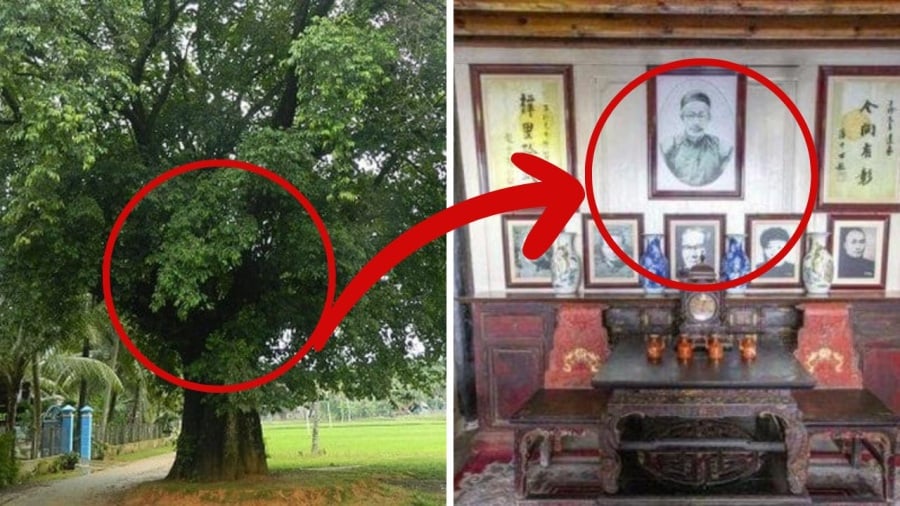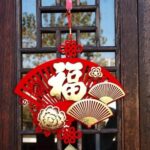The Significance of Home Feng Shui for Wealth and Prosperity
Feng shui, the ancient art of harmonizing individuals with their surrounding environment, has long been considered a crucial factor in attracting wealth and prosperity for homeowners. According to feng shui principles, a house is not just a place of residence but also a space that attracts and retains energy, influencing the balance and harmony between people and their living space.
A home with good feng shui facilitates the flow of positive energy, bringing good fortune, health, and financial blessings to the family. For instance, the main entrance, likened to the “mouth” that welcomes wealth, should be strategically positioned, well-lit, and free from obstructions like utility poles or large trees, allowing beneficial energy to effortlessly flow into the house.
Additionally, arranging furniture in a way that aligns with feng shui principles can activate financial luck. The living room, for instance, should be bright and spacious, exuding a warm and generous ambiance, thereby creating a sense of abundance. The wealth corner, typically located in the southeast, should be kept clean and can be enhanced with lucky charms, such as green plants, feng shui figurines, or other symbolic items to boost positive energy.
Feng shui also helps homeowners avoid bad luck. Choosing the right house direction and colors that align with one’s Chinese zodiac sign, as well as strategically placing mirrors and windows, can reduce negative influences, ensuring financial stability and sustainable growth for the household.
Here are some invaluable tips passed down through generations, which should not be overlooked:

Three Plants to Avoid Planting in Your Front Yard
1. Plants to Avoid
1.1. Willow Tree
The willow tree, known for its extensive root system and rapid growth, can cause structural issues with foundations and drainage systems. From a feng shui perspective, this tree is not ideal for the front yard as it tends to evoke a sense of gloom and stagnation. It may also attract negative energies, adversely affecting the family’s wealth and health.
1.2. Pine Tree
While the pine tree boasts resilience and graceful beauty, planting it in the front yard, according to feng shui, can evoke a sense of coldness and desolation. This may not only impact the aesthetics but also bring bad luck to the homeowner.
1.3. Eucalyptus Tree
The eucalyptus tree, with its expansive canopy and sturdy branches, can create a sense of heaviness and discomfort when planted in the front yard. In feng shui, this tree is believed to bring health and financial risks to the family. Moreover, its strong fragrance may be unpleasant for those living in the house.
2. Decorative Items to Avoid Displaying in the House

Avoid Clutter, Especially in the Living Room – the Heart of the Home
2.1. Broken Mirror
Broken or cracked mirrors should not be displayed inside the house as they are believed to disperse positive energy and create a sense of insecurity. Hanging a broken mirror may cause disruptions in family life and affect the harmony and well-being of the household, according to feng shui beliefs.
2.2. Paintings with Negative Themes
Artwork depicting war, natural disasters, or gloomy scenes should be avoided. Such paintings can evoke anxiety and stress, impacting the family’s mental health and peace of mind. Instead, opt for artwork with cheerful and harmonious themes to create a positive living space.
2.3. Old and Sentimental Items
Old and sentimental items, especially those associated with sad memories or negative events, should not be displayed. These objects may carry negative energies and influence the mood of family members. Replacing them with new and uplifting items will contribute to a healthier living environment.
These tips, passed down from generations, hold not only practical value but also feng shui significance, helping homeowners create a harmonious and auspicious living space. By adhering to these principles, you can foster a positive and fortunate environment for your family.
(This article is for reference only)
The Ancestors’ Admonition: “7 Don’t Bury Your Father, 8 Don’t Bury Your Mother” — A Reminder for the Descendants.
The ancient proverb, “7 does not bury their father, 8 does not bury their mother,” is a mysterious saying that has puzzled many. It is a phrase that requires deep insight and understanding to truly grasp its meaning. This intriguing proverb hints at a profound message about life, death, and the passage of time.





































